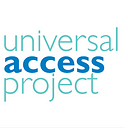Pregnant During the World’s Worst Humanitarian Conflict
By Seema Jalan
Imagine being pregnant, with the potential for complications in childbirth. Now imagine the only place available for medical treatment for such complications was recently the site of a deadly air strike. Would you still seek treatment, or would you be scared for your life — and the life of your child?
Girls and women in Yemen are no strangers to conflict. Turmoil and instability have rocked their home country for decades, and in 2015 morphed into a civil war that has become a full-scale “humanitarian catastrophe,” according to the United Nations. In the midst of conflict, the specific needs of girls and women are often deprioritized. For example, we know that pregnancy does not wait for a crisis to end.
Now, an estimated 90,000 women in the city of Hodeidah, Yemen are pregnant and at even greater risk than before as a major health care center, Al Thawra Hospital, was attacked earlier this month. The hospital — the largest in the city — is a significant neonatal care facility and sees roughly 400 deliveries per month, including caesarian sections.
With tens of thousands of women to give birth in the coming months — and nearly 14,000 at risk for complications that would require emergency care only available at Al Thawra — access to quality reproductive health care is needed now more than ever. Al Thawra is continuing to operate, but fear and insecurity following the brutal attack is keeping patients from seeking much-needed care, according to the UN Population Fund (UNFPA), the UN agency dedicated to reproductive health. UNFPA supports Al Thawra with essential reproductive health supplies and medicine, and is helping to establish an additional maternity ward there.
“Damage to health facilities, in particular reproductive health facilities resulting from the on-going fighting could paralyze the delivery of reproductive health services and supplies,” said Dr. Luay Shabaneh, UNFPA Director for the Arab Region. “It is becoming increasingly difficult to reach pregnant women or those who want to avoid getting pregnant with the reproductive health services and medicines they require. This could mean grave consequences to their health and their children.”
Even before the conflict escalated, Yemen had one of the highest maternal mortality ratios in the region: an estimated 385 women died of maternal causes out of every 100,000 live births in 2015 — compared to 26.4 in the United States. Now, says UNFPA, the ratio is likely to have doubled as the ongoing conflict cuts off access to health services and food. In response, UNFPA is scaling up its efforts in Hodeidah and the surrounding area, including ramping up support for other health facilities providing life-saving reproductive health care, distributing dignity kits and reproductive health kits to displaced women, and supporting midwives and gynecologists to assist emergency deliveries and caesarians. UNFPA also supports roughly 90 percent of obstetric fistula repair surgeries in the region, and helps survivors reintegrate back into their community.
But the humanitarian response in Yemen is truly a joint effort: UNICEF, the World Health Organization, UNHCR, and many other frontline agencies and organizations are working together alongside UNFPA to provide a full range of aid to the estimated 75 percent of Yemen’s population that is in need. It is now “the world’s worst humanitarian crisis,” according to the UN Secretary-General Antonio Guterres, and those on the front lines of response need support; UNFPA alone is facing a roughly $10 million funding gap for its aid work in Yemen, a number exacerbated by the U.S. decision to withdraw all funding from the agency — a forfeiture of its role as one of the leading donors to UNFPA’s humanitarian work globally.
It is easy to be overwhelmed by the sheer scale of the crisis in Yemen; but let us not forget that the lives and futures of 90,000 women — and, soon, their babies — depend on all of us stepping up and taking action.
Learn more about the Universal Access Project and get involved at www.universalaccessproject.org.
